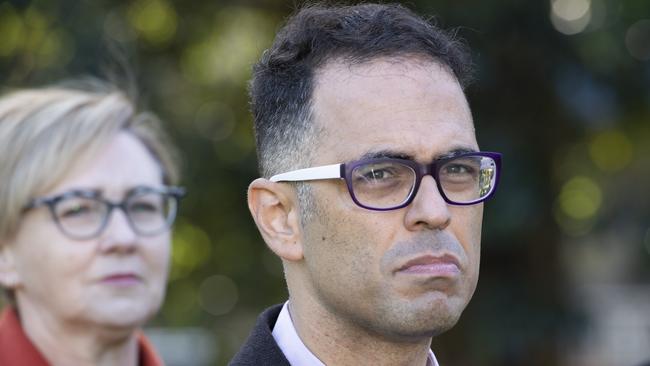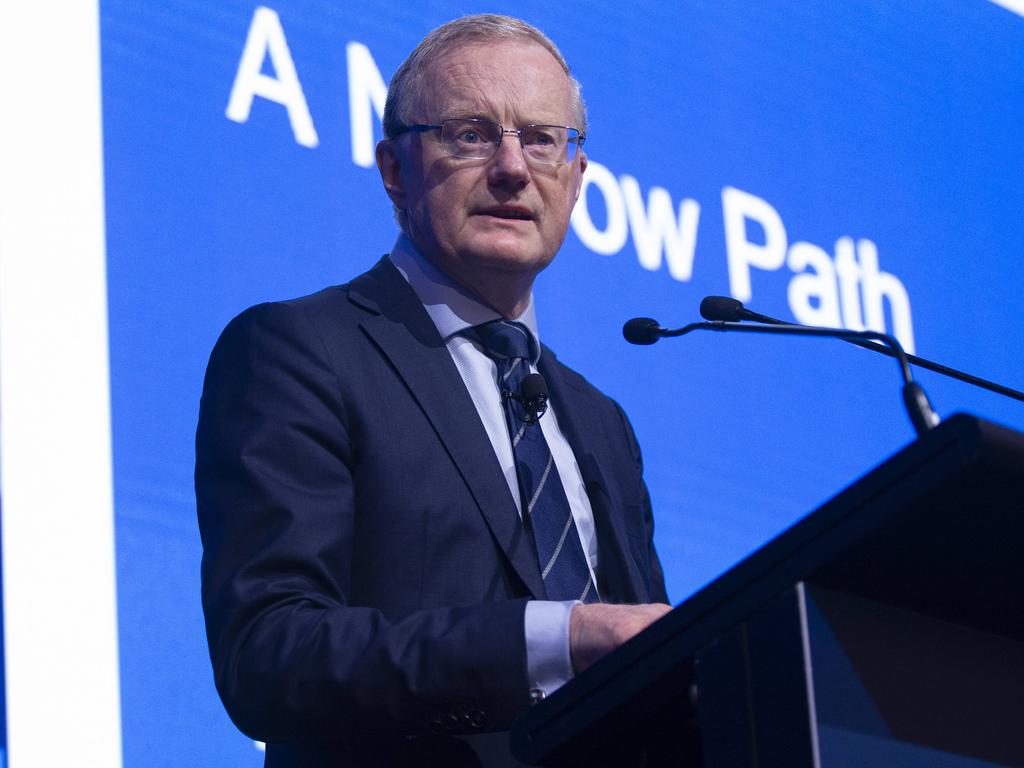NSW Treasurer warns of ‘tough choices’ amid recession risk
Daniel Mookhey has warned the state is at serious risk of falling into recession next year, as he foreshadows pursuing austerity budgetary measures.

NSW Treasurer Daniel Mookhey has warned the state is at risk of falling into recession next year, as he foreshadows pursuing austerity budgetary measures in the face of “severe” inflationary pressures.
With the traditional June budget delayed for three months, Mr Mookhey handed down the Labor government’s first economic statement on Tuesday afternoon, declaring the days of big spending, Covid-era budgets were over.
Mr Mookhey said his principal task would be tackling inflation which is hovering at the highest level since the 1990 recession, flagging an ongoing expenditure review ahead of the September budget would be filled with unavoidable, unenviable decisions.
“So there are tough choices ahead. They will not be easy. But they cannot be avoided. Ignoring them means taking the risk that inflation continues to persist; interest rates continue to rise; living standards continue to fall; and the state’s finances continue to deteriorate,” Mr Mookhey said.
With angst about Australia being pushed into a recession behind the Reserve Bank of Australia’s attempts to quell inflation, Mr Mookhey warned there were “very tough economic circumstances ahead”, saying the state’s remaining triple-A credit ratings were at risk due to the rising cost of servicing the government’s debt.
“The economy is facing pressure. We are dealing with a once in a generation, cost of living crisis. We’ve seen 12 interest rate increases in 14 months. Are we in danger of an economic slowdown? That’s true. We have to get inflation under control,” he said.
The best way of addressing the inflationary pressures confronting households was for the government to rein in its own spending, Mr Mookhey said.
By 2026, the state’s gross debt levels will reach $188bn, with nearly $59bn added across the next three years. The Treasurer said the cost of annual interest repayment in three years time would double to $7bn, representing “16 cents out of every dollar the state collects in taxes directly”.
Despite the cost-of-living challenges facing households, scaling back government handouts from the peaks of Covid was a necessity to tackle inflation, Mr Mookhey said, as he attacked the profligate spending of the previous premier.
“You cannot spend like it’s a Covid year when Covid is over,” he said.
“The previous government put their foot on the spending accelerator at a time when inflation is skyrocketing. We have to make sure our fiscal strategy suits the times.”
Despite a coal royalty boom delivering the Queensland government a record surplus, Mr Mookhey reaffirmed his pre-election commitment to not increasing taxes. He said the government was mindful of the existing $125 cap on coal prices, in conjunction with thermal coal, used for energy generation, representing the majority of deposits in NSW.
One inherited challenge was a $30bn revaluation of the state’s non-financial assets in light of the inflation challenges confronting the state, Mr Mookhey said, seeing the cost of depreciation rising by hundreds of millions of dollars each year from July 1.
Opposition leader Mark Speakman accused the government of overegging the challenges inherited by the previous government as a “pretext to break election promises and to cut spending”.
Inflationary pressures were outside of state governments control, Mr Speakman argued, saying the Treasurer’s “first priority” should be maintaining cost of living support for families.






To join the conversation, please log in. Don't have an account? Register
Join the conversation, you are commenting as Logout